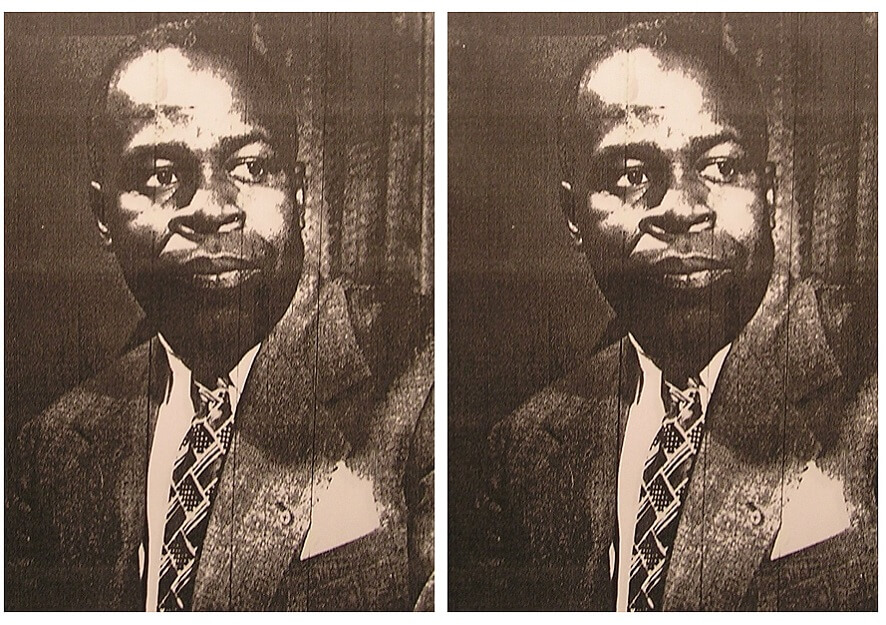The intriguing story of the first and only Black person known to have ever met Hitler in person

In the autumn/fall of 1932 when African-American scholar Milton Samuel J. Wright became the first and only person of African descent known to have had a face-to-face conversation with the infamous Nazi leader Adolf Hitler, Wright was at the time a Ph.D. student of economics at Heidelberg University.
Some sources say the African-American academic, born in Georgia, had just completed two years of study in Germany and had been given his degree certificate when he and his German friends decided to attend a regional political rally where Hitler spoke.
At the rally, Wright would allegedly joke with his friends that he wouldn’t mind assassinating the future dictator. SS guards apparently overheard the conservation and followed Wright as he went to a top hotel — Europäischer hof Hotel — in Heidelberg with his friends to have dinner. Hitler was at that same hotel. Wright, on entering the hotel, was reportedly detained by Nazi Stormtroopers and taken to Hitler’s room to be questioned.

Wright, conversant with Nazi ideology, was scared and thought that would have been his end. But their interrogation turned into a 3-4 hour dinner for the two, where they discussed several topics. The conservation unsurprisingly became one-way. Hitler, who was calm throughout, would ask and then answer his own questions but with a loud voice.
Wright, fluent in German, would later give an account of his encounter with Hitler. “The time with Hitler was spent almost entirely by his asking me questions about the Negroes in the United States. Of course I had little opportunity to answer any of his questions because he would no sooner ask a question than he would immediately proceed to give his own answer,” Wright wrote in the Pittsburgh Courier, a Black weekly newspaper.
“When I would attempt to correct some of his versions of life in America, he would almost invariably break in with another question or comment. With that exception he was most courteous to me. He spoke loudly, long, and with an air or authority.”
Hitler’s views on race during the conversation were what one would probably expect from him. Wright wrote: “He [Hitler] expressed the opinion that Negroes could not have much backbone, because of the fact that they consistently allowed the whites to lynch them, beat them, segregate them, without rising up against their oppressors. ‘They must be definitely third-class people,’ he said. ‘Minority groups always get the worst of it in conflicts like race-riots.’ ‘Don’t you think your people are destined perpetually to be slaves of one kind or another?’ he asked. Hitler’s answer was an enthusiastic ‘yes’! Your people are a hopeless lot. I don’t hate them. I pity the poor devils.”
The future German dictator however paid Wright a compliment at the end of their four-hour conversation, saying he loved the fact that the first Black person he had ever met in person could speak better German than any White American or Englishman he had ever heard.
In six months after their meeting, Hitler would rise to power as the Chancellor of Germany in 1933 and then as Führer in 1934. During the Nazi party leader’s dictatorship from 1933 to 1945, Jews and Blacks and a few other European nationalities were all victims of the Nazi’s racial cleansing, though anytime Nazi Germany is mentioned, the Jewish Holocaust is at the forefront of everyone’s mind.
In the Nazi era, from 1933 to 1945, African Germans were in their thousands. Servants, students, sailors and entertainers from present-day Rwanda, Burundi, Namibia, Cameroon, Togo, and Tanzania came to Germany, said a BBC report. In time, many African Germans were excluded from education and employment and were not allowed to have relationships with White people. Some were also sterilized while others were sent to concentration camps.
In effect, while Black Germans were not subject to mass extermination as in the cases of Jews, Romani and Slavs, they were targeted too, though not in the “same systematic way”, researchers say.
Wright had, before the start of the Nazi era, returned to the U.S. after having completed his dissertation, titled “The Economic Development and the Natives Policy in the Former African Protected Areas of Germany from 1884 to 1918.”
The academic, born in Savannah, Georgia, on June 28, 1903, had before pursuing his doctorate in economics at the University of Heidelberg in Germany, received his B.A. from Wilberforce University in Ohio in 1926 and his M.A. from Columbia University in 1928. While at Heidelberg in Germany, he was a student leader who received a lot of invitations to international student conferences at the University of Cologne in Germany and Oxford University in England, a report said.
The year before he met Hitler, he had wanted to launch student exchange programs between historically Black institutions in the U.S. and German universities. The African-American intellectual would later write a seven-page first-hand account of his meeting with Hitler in an article on Ebony magazine over 20 years after the reported encounter.
While back in the U.S., Wright became a professor and head of the Department of Economics and Political Science at his alma mater Wilberforce in 1933. In 1959, he was dean of the College.
Before his death on March 11, 1972, in Ohio, survived by his daughter, the conversation he had with Hitler was dramatically reenacted on the anti-racist radio show New World A-Coming in 1944.
Credit: face2faceafrica.com
Christopher Sam is a savvy web designer and developer with advanced knowledge in Search Engine Optimization. The certified Google Trainer is also a trusty contributor to this website.





